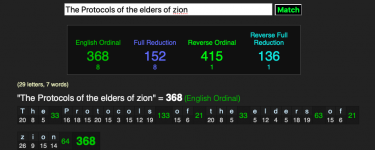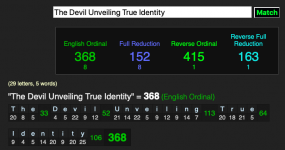You are using an out of date browser. It may not display this or other websites correctly.
You should upgrade or use an alternative browser.
You should upgrade or use an alternative browser.
J. H. Prynne
- Thread starter version
- Start date
-
- Tags
- 100 god damn pages butchering sontag cooking with propane corpsey why are you so thick deaths from bromo-dragonfly enjoy your journey enjoy! everyone! gravity bong happy to help! jamaican voodoo gang from predator 2 lads vs. dudes martin anus prynne is boring as fuck shaun from delaware stoned modernism teat. the albert ayler of the recorder the bee is the messiah the path clears by the use it gets thick as fuck to pollen traitor cow-juice treacle assembled proverb tangle proton west coast dudes
Benny Bunter
Well-known member
have you read our prelude thread? craner got realy aggressive and started snarling at me for reading it. he was in a white hot rage.
ive got no idea why it was really weird so i stopped reading it to placate him
Yeah I sort of flicked through it, that was funny! You were doing ready well I think. How much of it did you read in the end?
I did actually read some of it when I was at school and enjoyed it, plus I liked the lyrical ballads stuff. Prynne's revived my interest in him.
i read the first section where hes a small child. dropped it when he's about to start school.
I saved you a lot of time.
Benny Bunter
Well-known member
This looks good.The first word is O. This is a very fun playful and short essay by Prynne about the word O. It includes discussion of The Prelude.
Benny Bunter
Well-known member
2/3 of the way through this and a bit too pissed to carry on now but I'm super impressed at both the depth of knowledge and thoroughness, but also the clarity of the writing. Really looking forward to the collected essays now.
william_kent
Well-known member
I was having problems getting to grips with Dune Quail Eggs, but then I realised the pattern is 23 * 16
23 * 16 = 368 = The Great Conspiracy
( Picts, Scotti and Saxons reach Roman London and plunder the city. Theodosius, a general (Comes Britanniarum), is sent with a relief force to Britannia. He marches from Richborough, Kent, to deal with the invaders.)
or, in dodgy Gematria:

or:

none the wiser to be honest....
23 * 16 = 368 = The Great Conspiracy
( Picts, Scotti and Saxons reach Roman London and plunder the city. Theodosius, a general (Comes Britanniarum), is sent with a relief force to Britannia. He marches from Richborough, Kent, to deal with the invaders.)
or, in dodgy Gematria:

or:

none the wiser to be honest....
Last edited:
Benny Bunter
Well-known member
That's genius. Like the last one, I wonder if there's any truth in it, but you can't help but admire it. (I haven't read the poem being discussed so I wouldn't know really)
A lot of the academic essays floating about on the internet about Prynne I've been reading, while they have really good insights and ideas, they tend to focus on one small part of the text itself that they can understand, and ignore vast swathes of the poem that don't fit cosily into their pre-conceived thesis. Understandable of course cos of how difficult and mystifying it all is, but I want to read more focussed anysis on the actual words on the page, how he produces the effects he does and work, and also the etymology.
I was reading a decent one today about High Pink on Chrome today, and how it's all about environmentalism ecology etc, but it only accounted for very small sections of the book.
But I guess criticism of his work is still in its infancy.
A lot of the academic essays floating about on the internet about Prynne I've been reading, while they have really good insights and ideas, they tend to focus on one small part of the text itself that they can understand, and ignore vast swathes of the poem that don't fit cosily into their pre-conceived thesis. Understandable of course cos of how difficult and mystifying it all is, but I want to read more focussed anysis on the actual words on the page, how he produces the effects he does and work, and also the etymology.
I was reading a decent one today about High Pink on Chrome today, and how it's all about environmentalism ecology etc, but it only accounted for very small sections of the book.
But I guess criticism of his work is still in its infancy.
woops
is not like other people
No cos he's senile and being treated by all the small presses as some kind of living NFTHas JP turned his intellectual gaze to blockchain yet?
But I guess criticism of his work is still in its infancy.
That seems optimistic.
Benny Bunter
Well-known member
That seems optimistic.
Maybe, but I don't think so. I think you can make progress with Prynne but it's inevitably very, very slow work. When he dies and has another volume of collected works out plus collected essays there'll probably be a surge of interest in him too.
Plus this thread's only 2 years old!
woops
is not like other people
Craners being a snob he doesn't like Prynne cos he can't be bothered to engage with PrynneMaybe, but I don't think so. I think you can make progress with Prynne but it's inevitably very, very slow work. When he dies and has another volume of collected works out plus collected essays there'll probably be a surge of interest in him too.
Plus this thread's only 2 years old!
Benny Bunter
Well-known member
Yeah I thought he was being snobby but chose to overlook it and answer sincerely anyway.
Benny Bunter
Well-known member
All I can say is that after reading the yellow book for, what?, about 2 months or something is that a lot of the later stuff that at first seemed completely inpenetratable is now slightly less so and I'm now actively enjoying engaging with it. The first few books I loved pretty much straightaway.
william_kent
Well-known member
But I guess criticism of his work is still in its infancy.
It's still in the womb
The Library acquired Prynne’s literary papers and correspondence in August 2016. Filling 50 metres of shelving, the collection, accessioned as MS Add.10144, includes material covering all aspects of Prynne’s poetic career, together with much relating to his work as a critic and university teacher and administrator.
Since the mid-1960s, Prynne’s practice has been to assemble files relating both to the composition of a group or sequence of poems and its first publication in a (generally) small-scale pamphlet production. These are full of interest for researchers working on the sources and form of Prynne’s poetry, containing as they do not only autograph working drafts of the poems but contextual documents assembled by Prynne at the time of the composition of the texts, and the record of his dealings with the publishers—often fellow poets—and commercial printing firms responsible for bringing the texts to physical form on the page.
Cambridge University Library acquired "The Prynne Papers" in 2016 and still haven't catalogued them properly as far as I can tell from their website, and seeing as they say that takes up 50 metres of shelving, then I can imagine it will be years for anything approaching a "definitive" work of criticism to appear, if ever. There is just so much to ingest, especially if you are not J H Prynne.
I've avoided reading any criticism, as I've been trying to tackle the work on its own terms, without being influenced by outside sources - excepting the posters on this thread! - perhaps I should say that at this moment I don't want to be tainted by the opinions of academics and approaching the work with preconceived ideas. What I did read somewhere is that he has removed the "I" from poetry, but that strikes me as nonsense because from I've seen a Prynne poem is saturated in Prynne. The later poems may be a jumble of words at first glance, but they've words Prynne has chosen to publish. (edit: I'm trying to say that whatever that essay was, it wasn't helpful to me )
If a short work like Dune Quail Eggs ( 80 words ) can already generate so much text about it, just imagine the potential tomes that will be produced in the future if someone tries to tackle his entire bibliography and the archives....
Last edited:
Benny Bunter
Well-known member
Been getting into Bands Around the Throat the last couple of days, very bleak, chilly '80s book. Thatcher, neoliberalism, Chernobyl references etc - ok, I admit I had to read around the internet to properly pick up on those specifically, but it's definitely there in the feel of it anyway for anyone to read.
It's the unhappy era of Prynne certainly, but not altogether ugly. The poems have titles and are organised like 'proper' poetry in form, unlike some of the later forbidding breezeblocks of text. It's a good one.
It's the unhappy era of Prynne certainly, but not altogether ugly. The poems have titles and are organised like 'proper' poetry in form, unlike some of the later forbidding breezeblocks of text. It's a good one.
